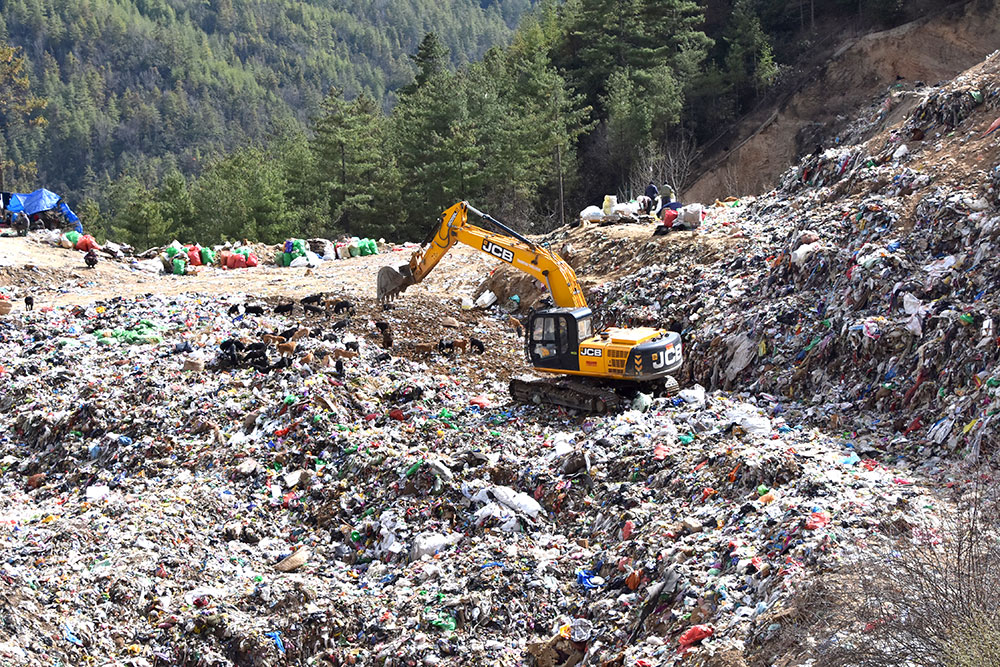In what appeared like grumbling or chanting, a security guard working at an international agency tended to the garbage he was burning early morning. He then broke off some branches of a pine tree nearby and let it burn emitting a thick white smoke.
He was not aware that the waste he was burning also had used sanitary pads in it. But he was more worried of defiling the sanctity of the place and upsetting the spirits, the local deities and such beings from the smoke of burning used sanitary pads.
Burning used sanitary pads will anger local deities who will in return unleash their wrath causing harm to those responsible, is not inscribed in any of our Vajrayana Buddhist religious scriptures, says Tashi Zangmo (PhD) of Bhutan Nuns Foundation.
“It is an old belief that has been followed religiously,” she said. In her recently published article, Red Nectar of the Sacred Lotus: A Buddhist Perspective on Menstruation, Tashi Zangmo presents that Vajrayana Buddhism in fact considers menstruation as pure, holy, and an essence of life.
Inquiry into where then the prevailing beliefs came from, and how it took roots in Bhutanese culture and traditions that remains steeped in religious beliefs, is elusive.
The plight of mensurating girls and women however, does not end here.
Disposing off used sanitary products in landfills is claimed to result in ‘pad pollution’ causing underground pollution, water pollution, and harm the ecosystem. Studies claim it takes between 500-700 years for a sanitary product to decompose.
A 2022 article by World Bank raised concern that disposable sanitary products contributed to a large amount of global waste, where, on an average a woman disposed off about 150 kilograms of non-biodegradable sanitary products in a lifetime.
Disposing off used sanitary products without angering the non-humans and humans alike, without releasing carcinogens in the air, or polluting soil and water, remains a dilemma. To be sure – shunned by the religion, culture and tradition across societies, more so in South Asia, and alarms raised by research studies, which of course require validation, could only push it for further discrimination and exclusion.
The natural monthly phenomenon of mensuration is dealt with secrecy, exclusion, and restrictions causing implicit challenges in the lives of girls and women resulting in a myriad of health issues associated with it, writes Indian politician, writer and former diplomat Shashi Tharoor. He introduced The Women’s Sexual, Reproductive and Menstrual Rights Bill 2018 in lower house of the Indian parliament, Lok Sabha in December 2018, calling for a new legal framework for policy implementation at the grassroots level.
Together with promoting menstrual hygiene, formal international organizations like UNFPA and UNICEF are encouraging returning to the old practice of reusable cloth-based sanitary products, but with modern innovation that promotes health and hygiene of the user.
Sustainable cloth-based sanitary products is the solution, says Tashi Zangmo. At the moment, about 1,300 nuns in country across 30 nunneries disposed off sanitary products by burying it in the ground and covering it appropriately. Burning it was beyond beliefs.
“We burn incense to appease to the deities, not upset them by burning sanitary products,” she reasoned.
Lest, there might be deities confused whether to be happy or angry.
“We are not able to get clearance to use incinerators so our children use covered pits dug in the ground for disposal,” said Karma Wangchuk, Chief of Health and Wellbeing Division, Department of Education Programmes.
He said the focus was more on supporting menstrual hygiene and providing facilities—sanitary products, disposal bins, changing rooms, as more than 50 percent of girl children missed school during menstruation.
He said, with support from UNICEF, effort was on-going to make sanitary products available to all schools in the country so that children don’t have to miss schools because of menstruation.
A growing consensus seems to be that an appropriately designed incinerators could also be a solution, besides a behavioural change towards adopting cloth-based reusable sanitary products.
Contributed by Bishal Rai
Photo: WHO: On average, a woman disposed off about 150 kilograms of non-biodegradable sanitary products in a lifetime
 As part of advocating Equity for Red Hygiene, Kuensel will publish a series of stories on Menstrual Health Management in partnership with MoESD and partners.
As part of advocating Equity for Red Hygiene, Kuensel will publish a series of stories on Menstrual Health Management in partnership with MoESD and partners.


